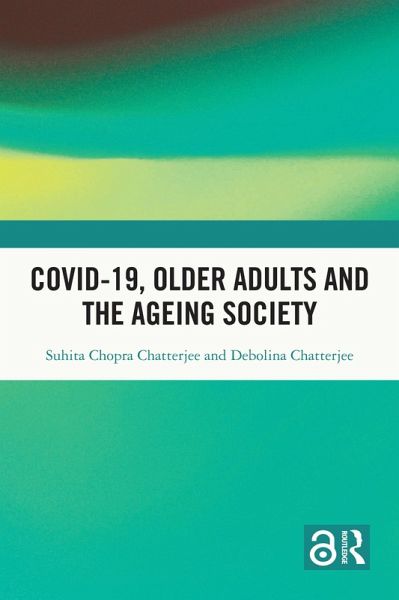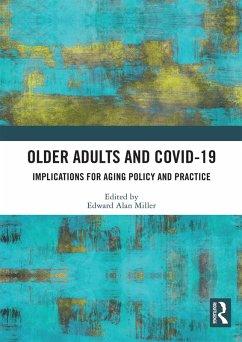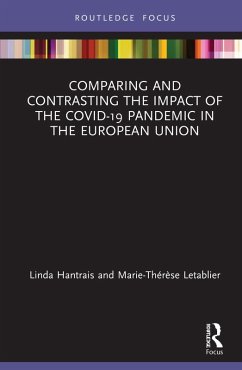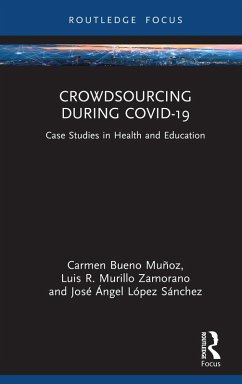
Covid-19, Older Adults and the Ageing Society (eBook, PDF)
Versandkostenfrei!
Sofort per Download lieferbar
0,00 €
inkl. MwSt.
Weitere Ausgaben:

PAYBACK Punkte
0 °P sammeln!
COVID-19 has brought unprecedented challenges in the care of older adults. During the first surge of the pandemic, governments all over the world struggled with high disease severity and increased mortality among older adults.This work documents the impact of the pandemic by collating information from different countries and by synthesizing inputs from several knowledge domains-Sociology, Gerontology, Geriatrics, Medicine and Public Health. The impact on older adults is examined primarily with respect to three main issues-pervasive ageism, spread of infections in care homes worldwide, and the ...
COVID-19 has brought unprecedented challenges in the care of older adults. During the first surge of the pandemic, governments all over the world struggled with high disease severity and increased mortality among older adults.
This work documents the impact of the pandemic by collating information from different countries and by synthesizing inputs from several knowledge domains-Sociology, Gerontology, Geriatrics, Medicine and Public Health. The impact on older adults is examined primarily with respect to three main issues-pervasive ageism, spread of infections in care homes worldwide, and the unintended harm of public health measures on geriatric population in different care settings. The complex tensions between epidemic control and the need to respond to social and economic imperatives are investigated with respect to disadvantaged and vulnerable older adults. The book also critically examines international ageing policies with the intention of identifying gaps in pandemic response in particular, and approaches to older adult care in general. In the light of the evidence presented, lessons are drawn which might improve aged care and strengthen emergency preparedness. Finally, considering the evolving nature of the pandemic, new international responses to older adult care and pandemic management are presented as an epilogue.
It is anticipated that the book would help nourish critical thinking and implement new solutions to older care during and beyond the pandemic
This work documents the impact of the pandemic by collating information from different countries and by synthesizing inputs from several knowledge domains-Sociology, Gerontology, Geriatrics, Medicine and Public Health. The impact on older adults is examined primarily with respect to three main issues-pervasive ageism, spread of infections in care homes worldwide, and the unintended harm of public health measures on geriatric population in different care settings. The complex tensions between epidemic control and the need to respond to social and economic imperatives are investigated with respect to disadvantaged and vulnerable older adults. The book also critically examines international ageing policies with the intention of identifying gaps in pandemic response in particular, and approaches to older adult care in general. In the light of the evidence presented, lessons are drawn which might improve aged care and strengthen emergency preparedness. Finally, considering the evolving nature of the pandemic, new international responses to older adult care and pandemic management are presented as an epilogue.
It is anticipated that the book would help nourish critical thinking and implement new solutions to older care during and beyond the pandemic
Dieser Download kann aus rechtlichen Gründen nur mit Rechnungsadresse in A, B, BG, CY, CZ, D, DK, EW, E, FIN, F, GR, HR, H, IRL, I, LT, L, LR, M, NL, PL, P, R, S, SLO, SK ausgeliefert werden.













